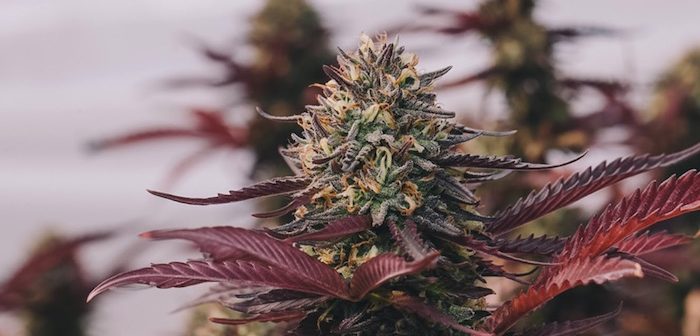In the Netherlands, cannabis products were already available when draconian penalties for cannabis offenses still reigned supreme in California, Colorado, and Vancouver. However, while many states and countries have relaxed their cannabis legislation, the rules on cannabis sales in Dutch coffeeshops have tightened gradually since the 1980s. Today, the shops must adhere to a growingly restrictive set of rules:
- Sales limits of 5 grams per person
- No products with more than 15% THC *
- No more than 500 grams of cannabis in stock per store
- Oils or extracts are considered hard drugs and cannot be sold
THC and CBD oil are listed as “tetrahydrocannabinol” and “hemp oil” on List I of the Opium Act, and are thus considered hard drugs by Dutch authorities. Considered separate from “soft drugs” such as herbal cannabis or hash, the sale of any hard drugs in the Netherlands is strictly prohibited. In addition to paying a high fine, a coffeeshop caught selling cannabis oil can lose its license.
Alongside its coffeeshops, the Netherlands has one of the oldest medical cannabis laws in the world. However, not even this 14-year-old legacy allows patients to use the arguably more effective cannabis extracts. Aside from a single unrealistic exemption, extracts are illegal for medical use.
“The only legal cannabis extracts which are available in the Netherlands are produced by a pharmacy for a patient who has a recommendation from a doctor (pharmaceutical compounding). Only GMP-certified pharmacies are allowed to make these preparations,” as the Office of Medicinal Cannabis (OMC) stated at the request of Marijuana.com.
But due to the exorbitant expense of that pharmaceutical extract, the procedure is hardly ever done.
In the neighboring Germany, the situation is the same. Here, patients pay for their herbal medicine and an extra 400 Euro to extract five grams of herbal cannabis. To produce one gram of extract requires about five grams of Bedrocan-Cannabis (6-22% THC, depending on the strain), which leads to the astronomic cost of a few hundred Euros per gram of cannabis concentrate.
Self-Help as an Act of Civil Disobedience
Dutch patients who need the highly-effective cannabis extracts are much better off enrolled in other programs than the state’s medical cannabis program.
Currently, there are several initiatives for medicinal cultivation and the production of extracts. The Frisian Medical Club Suver Nuver Medical Social Club is a foundation run by volunteers with the help of patients, growers, and extractors. The foundation in Leeuwarden serves several purposes. Their main function provides a meeting place where members of the foundation can share their experiences. Furthermore, the foundation’s property offers amenities such as an exercise room and a studio for musicians. So far, authorities in the Netherlands have tolerated the open distribution of THC oil by Suver Nuver. According to the foundation, their average members are women in their 50s who are completely cannabis-naive. The foundation operates clubs in five Dutch cities with 7,000 members total throughout the Netherlands.
In Amsterdam, Jan Dijkstra and his patient association sell organic THC oil, while in Tilburg, Marian Hutten en Serge de Bruin established the Foundation Patient Group Medical Cannabis Users (PGMCG). Together with the city’s mayor, the foundation performed groundbreaking work to supply cannabis patients with THC and CBD extracts. This group is lucky, as Peter Noordanus, the mayor of Tilburg, keeps an open mind toward small, home-based cannabis use, and was convinced to support the PGMCG. Different from other cities, his administration even tolerates a grower’s starter kit containing cannabis seeds and gardening tools. Thanks to this unusual coalition in Tilburg, cannabis patients and their needs are a higher priority than the outrageous rules for personal cannabis cultivation.
The Government is in a Tight Spot
The Leeuwarden-based Suver Nuver wanted to expand the Tilburg model nationwide and asked the city of Leeuwarden’s Mayor Ferd Crone for a collective cultivation license for all members. Though Crone was in favor of the idea, he denied the request, citing licensed cannabis cultivation as a federal issue and not a local mayor’s task in the Netherlands.
Although the clubs are obviously violating the law, the public prosecutor’s office has so far kept away — similar to the toleration policy of the coffeeshops that began in the 1970s. Since then, law enforcement has abandoned the pursuit of coffeeshops, although the sale of cannabis continues to be a criminal offense. The shops are tolerated if they follow the municipal authority’s given rules.
In contrast to most EU countries, toleration is fundamentally possible in the Netherlands in the case of offenses which are “not of public interest” in the opinion of the police and public prosecutor’s office. Cannabis advocates are optimistic that the authorities will handle the persecution of patients who make and use extracts the same way. To be frank, the model deserves not only toleration but a 100% legal basis.
*Since the purchase of cannabis products is illegal but tolerated, no certification guidelines exist for the sale of cannabis. The upper limit of 15% THC has therefore led to the fact that most shops do not provide information on the THC content so as to not endanger their license. If a product containing more than 15% THC is sold, the staff can claim ignorance.
credit:marijuana.com





